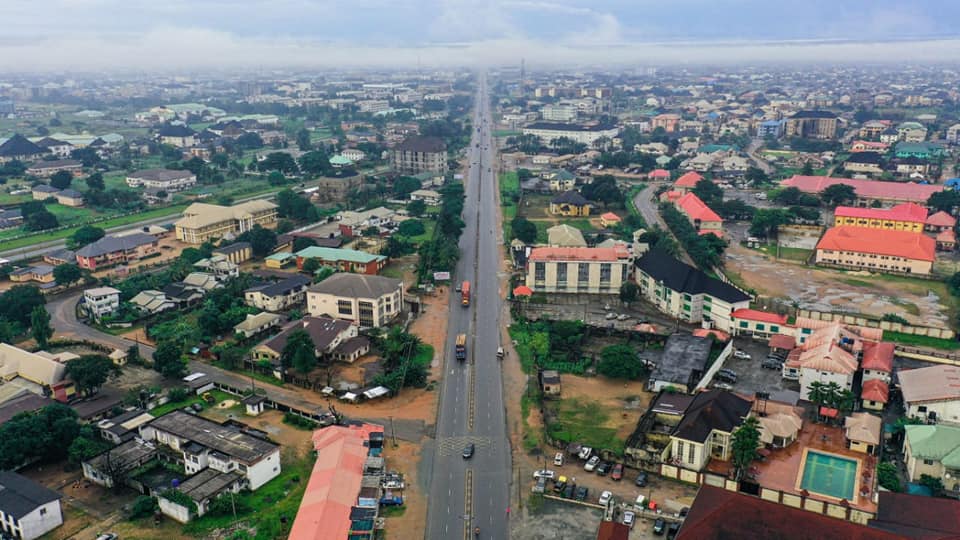
Marcellus, a character in William Shakespeare’s Hamlet, in order to emphasize the corruption and other terrible things happening in his country, in his dialogue with Horatio, maintained that “Something is rotten in the state of Denmark”. Centuries after the phrase was coined by Shakespeare, it has served as an idiom applying to any society that is cast adrift. Nigeria is cast adrift, for the occurrences in its 36 states defy comprehension.
Shortly before the All Progressives Congress came to power about eight ‘griefs’ ago, scores of Chibok girls were abducted on April 14, 2014,and the government’s approach to the matter incensed Nigerians who demanded immediate rescue of the victims. Funnily enough, eight years after the incident some of the girls are still in captivity today. But one can’t ignore the least-said-soonest-mended mentality of Nigerians. The rot set in too early under the APC-led administration, with killings and kidnap happening unabated. Since 2015, I haven’t met any Rip Van Winkle who says that Nigeria has changed for the better.
No writer can exhaustively compile the list of killings and kidnap in Nigeria: Dapchi schoolgirls on February 19, 2018; abduction and senseless execution of the International Committee of the Red Cross workers in 2018; aid workers on July 18, 2019; Kankara schoolboys on December 11, 2020; Ahmadu Bello University students on November 15, 2020; the University of Port Harcourt lecturers in 2016 and on February 22, 2021; Ambrose Alli University on March 19, 2022; the Federal University of Dutsin-Ma on August 20,2022; and many others.
Violent extremism, which is not the right approach by aggrieved, organized groups to express their dissatisfaction, is on the increase in Nigeria. In Imo State for instance, people living in Orlu, Ihitte, Onuimo, Mbaitoli, Ideato North, Omumma Mgbidi, etc. move with caution and trepidation. Similarly, the inhabitants of Idemili North and South, Ihiala, Nnewi North and South in Anambra State and those of Enugu, Ebonyi and Abia States live in anxiety.
On March 28, 2022, an Abuja-Kaduna train was attacked and its passengers whisked away, followed by the Edo train attack of January 7, 2023. On January 2023, over thirty cases of kidnap and killings were recorded. On the 22nd of the same month, the media sickened us with: ‘Gunmen beheaded Imo LG boss after collecting ransom’; ‘Gunmen kidnap three in Osun, demand N5m’; ‘Gunmen shot two persons dead in Anambra’; and ‘Suspected terrorists kill three, abduct three in Niger’. Killing captives after ransoms have been paid is insane. Murderers sponsored by desperate ‘individuals’ can be at large today, but will face the consequences tomorrow.
Groaning under the weight of the rot in their country, the spirits of the departed Nigerians are protesting. Some have resurrected in Cross River, Ebonyi, Edo, Oyo, Ogun and Plateau States whilst some might have even mutated into living things elsewhere. Corpses normally don’t leave their graves; they rot away and become soil decades after they were pronounced dead. However, the latest twist gives cause for serious concern. Whether the corpses rise by themselves or are exhumed by ritualists, the development portends evil for Nigeria. Though rotten and immaterial, the spirits are angry with their rulers and as such, it is up to Nigerians to determine whether this is a sign that the country will collapse very soon or not.
The masses are praying to God to deliver Nigeria from its malaise: Public and recovered funds are stolen; strange policies introduced to aggravate the plight of the masses; inflation and unemployment rattling the country; budget padding an open secret; parody smears the judiciary; square pegs in round holes; deceits dance in the National Assembly; constitution disregarded; parliament skirts the issue of impeachment; impunity, tribalism and hypocrisy thrive; the judiciary and INEC determining winners of elections; phony anti-terrorism funding; men entrusted with the task of prosecuting criminals, looters and hard drugs traffickers are themselves recidivists and reprobates; educational institutions sunk to their nadir, venal police officers, civil servants, etc. at large; and worse still, the masses have been suppressed. Corruption lingers in Nigeria because “… that old serpent, called the Devil, and Satan… deceiveth the whole world…” (Revelation 12:9)
Why are convicted Nigerian rulers released from prison and encouraged to govern the same people they have stolen from? What does the N77t debt profile portend for Nigeria and its citizens? Do the incessant fuel crises really have anything to do with the marketers? Are those behind the scarcity stakeholders who are paving the way for a monopoly of petrol at the new refinery being set up in Lekki? Do Nigerians understand why the refinery’s pipelines in Lekki are strategically chanelled to countries outside Nigeria? Why are the rulers desperate to buy the refineries in Port Harcourt, Warri and Kaduna under the pretext of privatization?
When will the rulers stop sponsoring terrorism over mineral resources in a country already bereft of peace and bedevilled by under-production? Why are natural resources, when refined, unavailable to the average Nigerian in whose soil they are found? These questions appear rhetorical but are not; they reveal how deep Nigeria is in the sumptuous soup prepared by the Satan. “…Things which connect so well elsewhere, /Like the telephone, the motorway, the airways /Dislocate our lives so much…,” lamented the late J.P Clark. Nigerian roads aid fatality; trains derail whilst boats and ships keel over; Tucano and NAF jets meant for mass destruction of terrorists turn into weapons of self-destruction; and card readers malfunction during elections, and it is hoped that INEC cyber is secured against attacks and BVAS, IREV, IVED, etc. won’t disappoint in February 25, 2023.
To conclude, two of the basic things Nigeria needs in order to progress are God and peace. Nigeria must operate in an atmosphere devoid of corruption and violent extremism, for peace to reign. To boast of a crime-and corruption-free Nigeria, the rulers and the ruled must do the needful and live up to expectations. Since experience has shown that the rulers have failed to stop the agonies of the masses and voters love to elect corrupt leaders who will favour them, February 25 should pave the way for God to become President of Nigeria so that life becomes fair and meaningful to the poor, and everyone rejoices. By allowing corruption and violence to reign, our leaders have driven Nigeria into extinction and what is left for its masses to brag of is rot.
Sola wrote from Port Harcourt.






